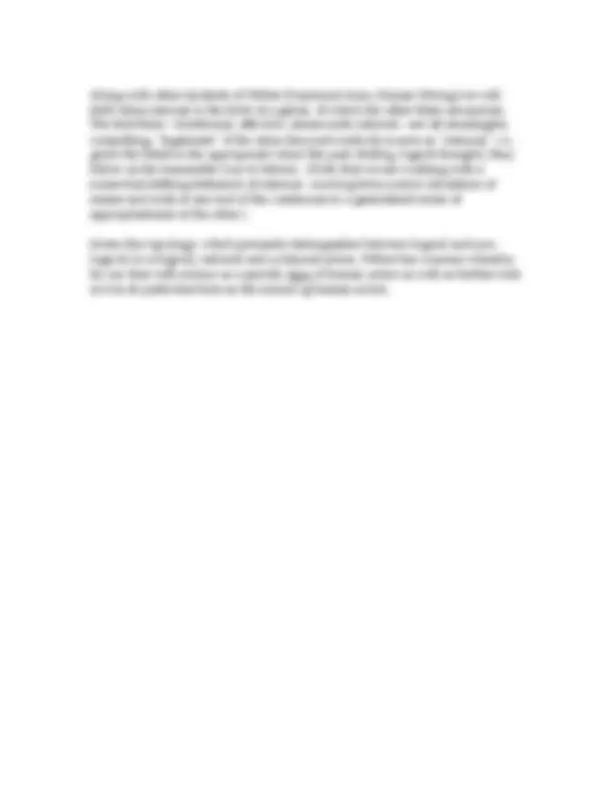



Study with the several resources on Docsity

Earn points by helping other students or get them with a premium plan


Prepare for your exams
Study with the several resources on Docsity

Earn points to download
Earn points by helping other students or get them with a premium plan
Community
Ask the community for help and clear up your study doubts
Discover the best universities in your country according to Docsity users
Free resources
Download our free guides on studying techniques, anxiety management strategies, and thesis advice from Docsity tutors
Max Weber;s soical action : value rational, traditional, effectives and end mean rational.
Typology: Lecture notes
1 / 2

This page cannot be seen from the preview
Don't miss anything!


value-rational ( werkrational ) – action in support of, in defense of, in commitment to a particular value (not necessarily pursued by rational means, by in some way that “makes sense”) ~ SPECIES ~ traditional – action entrenched through habit, dictated by custom, past experience, the weight of history affective – action stirred (even dictated) by an immediate emotion, often precipitated by a charismatic figure means-ends (goal) rational ( zweckrational ) – action consonant with logic, rational calculation, instrumental assessment, sometimes translated as “technocratic thinking”
Along with other students of Weber (Raymond Aron, Dennis Wrong) we will shift value-rational to the level of a genus, of which the other three are species. The first three—traditional, affective, means-ends rational—are all meaningful, compelling, “legitimate” if the value they each embody is seen as “rational,” i.e., given the belief in the appropriate value (the past, feeling, logical thought), they follow as the reasonable way to behave. (Note that we are working with a somewhat shifting definition of rational—moving from a strict calculation of means and ends at one end of the continuum to a generalized sense of appropriateness at the other.) Given this typology, which primarily distinguishes between logical and non- logical (or a-logical), rational and a-rational action, Weber has a means whereby he can deal with science as a specific type of human action as well as further look at it in its particular form as the science of human action.